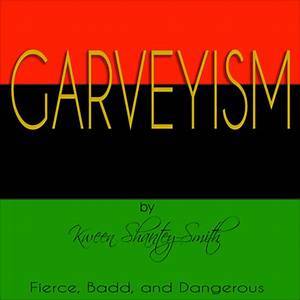Save for Later
The “back to Africa” movement, historically, has been a long-standing topic and is suspected of being used offensively by those with racist views. But it also found some echoes among black leaders. The proponent of the idea was Marcus Garvey. Garvey was a Jamaican-born black nationalist who created the ‘Back to Africa’ movement in the early 20th century in the United States, although he explained that the idea did not apply to all African Americans. “We don’t want all the Negroes in Africa. Some are not good here, and certainly not good there,” he said.
Garvey is a controversial figure, but he has received credit for fostering pride and self-respect among Africans and the African diaspora amid widespread poverty, discrimination, and colonialism. In Jamaica, he is widely regarded as a national hero. His ideas had a considerable influence on movements such as Rastafari, the Nation of Islam, and the Black Power Movement.
Supporters of Garvey’s idea, which is usually called “garveyism”, many references judge Garvey’s spirit of nationalism, so that they give appreciation as a hero, are buried in the hero’s grave, a statue is made to commemorate Garvey’s struggle, even Jamaica and Rastafari groups wear flag colors inspired by the movement. Marcus Garvey. You must be familiar with the distinctive colors of the Rastafarians, such as the UNIA flag, the organization that Garvey founded and led.
Marcus Mosiah Garvey Sr. ONH (17 August 1887 – 10 June 1940) was a Jamaican political activist, publisher, journalist, businessman, and orator. He was the founder and first General President of the Universal Negro Improvement Association and African Community League (UNIA-ACL, commonly known as UNIA), where he declared himself Interim President of Africa. An ideological black and Pan-African nationalist. Born into a fairly affluent Afro-Jamaican family.
He founded UNIA in 1914. In 1916, he moved to the United States and founded a branch of UNIA in the Harlem district of New York City. Emphasizes unity between Africa and the African diaspora, campaigns for an end to European colonial rule across Africa, and the political unification of the continent. He envisioned a united Africa. Although he never visited the continent, he was committed to the Back to Africa movement, arguing that some of the diasporas had to migrate there.
Believing that black people needed financial independence from a predominantly white society, Garvey launched various businesses in the US, including the Negro Factories Corporation and the newspaper Negro World. In 1919, he became President of the shipping and passenger company Black Star Line, which was designed to forge links between North America and Africa and facilitate African-American migration to Liberia.
His struggle was met with obstacles. In 1923 Garvey was convicted of mail fraud for selling company stock and was imprisoned in the United States Penitentiary, Atlanta for nearly two years. Many argue that the trial was politically motivated; Garvey blamed the Jews, claiming that they were prejudiced against him because of his ties to the KKK. It is very possible that this happens in the world of politics and business competition, especially Garvey from the black race.
After his sentence was commuted by US President Calvin Coolidge, he was deported to Jamaica in 1927. Living in Kingston with his wife Amy Jacques, Garvey founded the People’s Political Party in 1929, serving as a member of the city council. With UNIA in increasing financial difficulty, in 1935 he moved to London. Dan died there in 1940, although in 1964 his body was returned to Jamaica for reburied.
In June 1922, Garvey met with Edward Young Clarke, the interim Imperial Witch of the Ku Klux Klan (KKK) at the Klan’s offices in Atlanta. Garvey made a number of inflammatory speeches in the months leading up to the meeting; in some, he thanked the white man for Jim Crow. Garvey once stated:
I consider the Klan, the Anglo-Saxon club, and white American society, as far as Negroes are concerned, to be better friends of the race than all the other hypocritical white groups put together. I like honesty and fair play. You can call me a Klan if you like, but, potentially, every white person is a Klan as far as Negroes compete with whites socially, economically, and politically, and there’s no point in lying.
News of Garvey’s encounter with the KKK soon spread and was covered on the front pages of many African-American newspapers, causing widespread outrage. When the news of the meeting was revealed, it caused a lot of shock and anger among African Americans; Grant noted that it marked “the most significant turning point in its popularity”. Several prominent black Americans—Chandler Owen, A. Philip Randolph, William Pickens, and Robert Bagnall—launched the “Garvey Must Go” campaign following the revelation. Many of these critics played up nativist ideas by emphasizing Garvey’s Jamaican identity and sometimes calling for his deportation. Pickens and several other Garvey critics claim to have been threatened, and sometimes physically assaulted, by the Garveyites. Randolph reported receiving a severed hand in the mail, accompanied by a letter from the KKK threatening him to stop criticizing Garvey and join UNIA.
After his death, but interest in him was revived by the Rastafari religious movement. Jacques wrote a book about her late husband, Garvey, and Garveyism, and after finding that no publisher was interested, she self-published the volume in 1963. In 1962, when Jamaica became independent, the government hailed Garvey as a hero. In 1969, he was posthumously awarded the Order of National Heroes by the government of Jamaica. In 1975 reggae artist Burning Spear released the album, Marcus Garvey.
Interest in Garvey’s ideas would also be revived in the 1960s through the growth of independent states across Africa and the rise of the Black Power movement in the United States.
Mark Christian suggests that Garveyism provided an important psychological impetus to African leaders campaigning for independence from European colonial rule. Kwame Nkrumah, writing in his autobiography, a prominent Pan-African activist who became Ghana’s first president, admits to having been influenced by Garvey. The flag that Ghana adopted when it became independent adopted the UNIA colors. In November 1964, Garvey’s remains were removed from West Kensal Green Cemetery and transported to Jamaica. There, the statue was in Kingston’s Catholic Cathedral before a motorcade took him to King George VI Memorial Park, where he was reburied.
Martin Luther King Jr. and his wife Coretta Scott King visited Garvey’s shrine on June 20, 1965, and laid a wreath. In his speech, he told the audience that Garvey “was the first person of color to lead and develop a mass movement. He was the first person on a mass scale and level who gave millions of Negroes a sense of dignity and destiny. And made Negroes feel he was a person.”
summary: BBC, Wikipedia, and face2faceafrica
notes:
also follow @kronika’s publications on:
1. https://www.blaqsbi.com/social/u/adayy/home?CSRF_TOKEN=a22fcb3b0cb489cfc626e56889f5e9a29d5c8cd1#
2. https://mykronika.blogspot.com/
3. https://medium.com/subscribe/@gofindtalent
4. https://www.linkedin.com/in/dauf-amin-30a19a232/





Responses